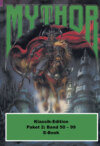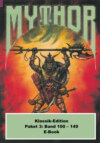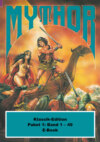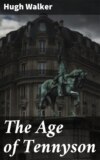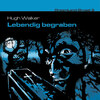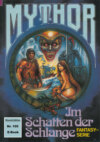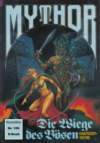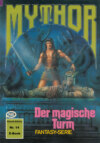Kitabı oku: «The Age of Tennyson», sayfa 14
In his criticism Arnold laid little stress on rules, and those he did appeal to were wide and elastic. The one thing he greatly insisted upon was the necessity of unity of impression. No work of art could be called great that did not produce a deep and abiding impression as a whole, and not merely in its parts. In the details of criticism he trusted to no rules, but rather to a taste saturated with ‘the best of what has been thought and said.’ His sentiment is expressed in the well-known essay on the study of poetry, introductory to Ward’s English Poets. ‘There can be no more useful help,’ says he, ‘for discovering what poetry belongs to the class of the truly excellent, and can therefore do us most good, than to have always in one’s mind lines and expressions of the great masters, and to apply them as a touchstone to other poetry.’ He followed in practice his own precept, and determined to finish up with Shakespeare’s King Lear, before writing this very essay, in order to have a proper taste in his mind while he was at work.
The rest of Arnold’s works in prose are conceived in the same frame of mind, but deal with matter less tractable to the author. The social essays are of high quality. Arnold’s campaign against Philistinism, his insistence on lucidity, not in literature alone but in all the relations of life, his championship of urbanity, his polemic against narrow sectarianism, whether religious, or social, or political—all this is important as well as interesting. The playfulness of Arnold’s habitual mode of expression helped to conceal the real earnestness of his purpose. But in all this he had very much at heart the improvement of his countrymen. He was by nature and instinct a teacher; and, though he was too much an artist to obtrude it or let it spoil his work, there was a didactic purpose under nearly all he wrote, verse as well as prose. For this he sacrificed popularity. Knowing well that to say what is agreeable is a surer and easier road to favour than to say what is helpful, he yet chose the latter course.
The same purpose animates likewise Arnold’s theological writings; but in this case the want of special equipment is more serious. It is unwise of anyone, without long years of special training, to undertake biblical criticism. The opinion of a great Hebraist as to the facts about the book of Isaiah is valuable; the opinion of anyone else is that of an amateur. The motive which animated Arnold however is easily understood, and for certain purposes his judgment is quite as worthy of respect as that of the most accomplished theologian. Arnold’s position was peculiar. While retaining a great deal of religious sentiment he had thrown aside entirely the positive dogmas of religion. He was strongly attached to the religion of the Bible, Old Testament as well as New; and just because of this attachment he wished to remove the crumbling foundation of theological systems and find a safer basis for it. ‘Our popular religion at present conceives the birth, ministry, and death of Christ, as altogether steeped in prodigy, brimful of miracle;—and miracles do not happen.’ Arnold’s object was to set free Christianity, which had hardened in the mistaken fact, and to establish it on the living idea. Undoubtedly he was well qualified to form opinions on these fundamental questions. Neither the clergy, nor the churches, nor specialists in biblical lore, have any monopoly here, or any peculiar right to respect. The ultimate questions of religion are to be settled by a review of the whole of life, for which every man has his own special advantages as well as his own special limitations.
Arnold’s style, in prose as in poetry, is one of the elements of his power. Though not free from mannerisms, it is easy, harmonious, scholarly and scrupulously pure. He is content to write about plain things in a plain manner. His great charm is the constant play of wit and humour, of irony and satire, over his prose. The wit and irony are, as a rule, lambent rather than piercing, but they are sometimes exceedingly keen. Occasionally he rises to a high pitch of eloquence. There are few passages of English prose more memorable than the celebrated apostrophe to Oxford, the ‘home of lost causes, and forsaken beliefs, and unpopular names, and impossible loyalties.’ Yet even there, when his feelings are most highly strung, the comic touch comes in: ‘There are our young barbarians, all at play.’ Arnold smiles at himself as he smiles at others, and by doing so takes all offence from his wit.
Dr. John Brown
(1810-1882).
William Brighty Rands
(1823-1882).
Two minor names, those of Dr. John Brown and William Brighty Rands, are, perhaps, best included among the critics. The former is most widely known as the author of Rab and his Friends, a piece not easily surpassed for mingled pathos and humour. Brown wrote a style of very high merit. In the miscellaneous collection of his writings, which he entitled Horæ Subsecivæ, there is much to remind the reader of Lamb. Yet he was guiltless of imitation, and the resemblance exists because he had the same fine humour and the same sensitiveness of perception as the earlier writer. No one has written better than Brown about dogs; and his comprehension of them and his power of depicting them are seen even better in Our Dogs than in the famous essay on Rab, where the human figures divide the interest with the great mastiff. Brown’s critical papers are few, but they show that he knew how to get at the heart of his subject.
Rands is a man much less known than he deserves to be. He wrote on many subjects, but generally under assumed names. His children’s verse in Lilliput Levee (1864) is very good, and his opinions on ‘life and philosophy’ in Henry Holbeach (1865) are still better. This book is thoughtful, acute in criticism, and enriched with not a few memorable sayings. Perhaps the best essay in it is that on Cavaliers and Roundheads, where the description of the Tory or Cavalier mind, with no opinions, only dogmas, and a genial superstition which answers the purpose of religion, is admirable; and in another essay there is an even more delicious description of the minister of the Little Meeting, ‘his heart amply supplied with the milk of human kindness, and his creed blazing with damnation.’ Rich as English literature is, it is sensibly impoverished when work of this quality is forgotten.
The present period has been fruitful also in departments of scholarship cognate to literary criticism. Among scholars in the old sense of the term the most distinguished were John Conington at Oxford and H. A. J. Munro at Cambridge. The former had the more versatile literary gift, but the latter was far more ‘high built’ in learning, and his edition of Lucretius is admittedly one of the triumphs of English classical culture. In the same sphere the great statesman, W. E. Gladstone, deserves mention, less perhaps for the positive value of his Juventus Mundi and Homeric studies, than for the extraordinary energy which made such work possible amidst the distractions of party politics. More characteristic of the age has been the development of Anglo-Saxon and Middle English lore. Benjamin Thorpe and Joseph Bosworth both did valuable work in this sphere. The former edited Caedmon in 1832, and in the course of his long life supervised editions of nearly all the more important remains of Anglo-Saxon literature. Bosworth’s name is identified with the Anglo-Saxon Dictionary, which, though now philologically rather antiquated, was in its time a bold undertaking. Sir Frederick Madden, a somewhat younger man, performed for a later period the work Thorpe did for the beginning of our literature. The accomplished Richard Chenevix Trench, for twenty years Archbishop of Dublin, was not only an agreeable poet, but did great service to the study of the English language. His Study of Words and English Past and Present have done more to popularise philology than, probably, any other books we possess.
The study of Eastern civilisation has been another special line of modern research. The explorations of Layard threw a flood of light upon Nineveh, and, in the still more remote East, Sir Henry Creswicke Rawlinson achieved the remarkable feat of deciphering the Persian cuneiform inscriptions. Curiously enough, the same thing was done independently and almost simultaneously by Dr. Edward Hincks. Another portion of the East was studied by E. W. Lane, the greatest English Arabic scholar of his time, the best translator before Sir Richard Burton of the Arabian Nights, and author of one of the best books on life in the East, the Account of the Manners and Customs of the Modern Egyptians.
George Borrow
(1803-1881).
Among travellers who were not scholars, David Livingstone deserves mention for the greatness of his African discoveries, and McClintock as the chief in his time of Arctic explorers. But in the literary sense both were far surpassed by George Borrow, an author very hard to classify, but whom some would be disposed, for more reasons than one, to rank among the writers of fiction. Borrow did write stories, Lavengro (1851), and its sequel, The Romany Rye (1857), where facts of his own life are bewilderingly mingled with fiction; while it is strongly suspected that there is no small element of romance in the books of travel on which his fame chiefly rests. He had a remarkable gift for languages. Among other little-known tongues, he studied the Gipsy speech, and published a volume on The Gipsies in Spain (1841), and a word-book of the English Gipsy dialect. His best book however is The Bible in Spain (1843), an exceedingly readable account of his travels as colporteur in that country. Whether it be trustworthy as a record of facts or not, The Bible in Spain has at least induced some whose whole interest was in tracts and colportage to read a piece of good literature, and has delighted with entertaining adventures others who looked for nothing better than an enlarged specimen of the tract kind.
CHAPTER X
POETRY FROM 1850 TO 1870: THE INTELLECTUAL MOVEMENT
We have already seen that traces of change in the spirit of poetry manifest themselves soon after the opening of the present period. They appear in the works of men like Bailey and Sir Henry Taylor, and they grow steadily stronger in the successive volumes of Tennyson. We have also seen that a spirit cognate to this manifests itself in other departments of literature as well. It attains its full growth, especially in poetry and art, about the middle of the century; and so marked is the difference from the previous four-and-twenty years that it has been called the English Renaissance. The name is too ambitious and grandiloquent, yet if we do not press it unduly it will be useful in reminding us that literature had in nearly all departments come to be dominated by new ideals. Nowhere do we see them more conspicuous than in poetry. Their influence is visible in the rise of new schools; first, the ‘Spasmodic School,’ stronger in passion than in intellect, and greater in promise than in performance; and secondly, the Pre-Raphaelites, who were primarily artists, but who were also men of letters. The first article of their creed was to be true to nature; but they were far from being realists as the word is now commonly understood. More important than either of these were those whose task may be described as that of wedding intellect to imagination. They were not a new school, for their leaders, Browning and Tennyson, had been active all through the first part of the period. But their power and their influence had now grown to maturity; both in their choice of subject and in their treatment they were swayed by the spirit of the time; and they were reinforced by some new writers who took a similar view of the functions of poetry.
The greatest of these new writers is Matthew Arnold, and his thought is so eminently representative of the generation that it may be well to consider him even before his seniors. It was as a poet that Arnold began his literary career. He won prizes for poetry at Rugby and at Oxford, and in 1849 he published his first volume, The Strayed Reveller, and Other Poems. Empedocles on Etna, also accompanied by other poems, followed in 1852, and another volume of poems the year after. A few additions to the pieces thus published were gradually made, and in 1867 appeared the New Poems. From that date Arnold wrote poetry sparingly. His career was therefore comparatively short, and the bulk of his verse is not great. He was frozen into silence by ‘that dull indifference to his gifts and services which stirred the fruitless indignation of his friends.’ But in poetry quality counts for more than quantity. Small in bulk as is his contribution, Gray has nevertheless a secure place among the immortals. Arnold’s contribution is much larger than Gray’s, and it has the same purity and beauty of finish.
Arnold was born just at the proper time to feel the forces of change working around him, and the sense of change is from the first deeply impressed upon his poetry. It is this, combined with his critical attitude of mind, that makes him specially the voice of the doubts and difficulties of his generation. The critical aspect of Arnold’s verse has been already noted. It is critical of human existence as well as of other poetry. In Obermann Once More, in Thyrsis, in The Scholar Gipsy, in Mycerinus, in Resignation, in the lines To a Gipsy Child, and in numerous other pieces we see the workings of this critical spirit. We see too that he is most of all weighed down with the profound sense of change. He finds himself in a world where all things have to be made new, and where the power that promised to renew them remains unseen. This is the case with religion, for the conviction of the decay of Christianity in the dogmatic sense is as plainly visible in Arnold’s verse as in his prose. It is the case also with politics and the social system. The French Revolution had shaken these, and had left to the next generation the task of rebuilding them. Its tremendous magnitude awes Arnold. He has none of that confident optimism which in Browning springs from breadth of intellect; still less does he share that which, in the panegyrists of material progress, is begotten of narrowness. He thinks the conditions of the time unfavourable to spiritual growth. It does not afford that ‘shelter to grow ripe,’ and that ‘leisure to grow wise,’ which even Goethe found in his youth, exposed though he was in maturer years to ‘the blasts of a tremendous time.’
This conception of the conflict, and especially of the unparalleled complexity, of modern life, is the dominant thought of Arnold. It is the warfare of so many elements that in his eyes distinguishes his own from all previous ages. In former times each civilisation stood by itself, not vitally affected by the puzzling elements of alien civilisations. The modern task is to fuse all together. The actress Rachel is typical, and as in her birth, and life, and death, and in her physical, mental and moral nature, there met and clashed ‘Germany, France, Christ, Moses, Athens, Rome,’—so do they meet and clash in the lives of all Arnold offers no solution of the problem. He points out the difficulty, he cherishes an ultimate hopefulness, but none of the answers to the riddle satisfies him.
The tone most characteristic of Arnold is in harmony with such fundamental conceptions. It is a tone of refined and thoughtful melancholy. This made him a supreme elegiac poet. Thyrsis, the memorial poem on his friend Clough, is generally ranked with the masterpieces in the same type of Tennyson and Shelley and Milton. But Thyrsis does not stand alone. The Scholar Gipsy, the Obermann poems, Rugby Chapel, A Southern Night, and several others of Arnold’s finest pieces likewise belong to this class. The elegiac spirit is his special gift, and he shows it in a characteristic way. His poems are not elegiacs for the individual; they are not so even when, as in Rugby Chapel and A Southern Night, the subjects are most intimately related in blood to Arnold. He habitually looks beyond the individual to the race, and rather mourns ‘the something that infects the world.’
Arnold was a student of Wordsworth, and was among the most discriminating admirers of that great poet. One of the best of the critical essays is devoted to him; and the finest selection ever made from the poetry of Wordsworth was made by Arnold. The skill of that selection proves that Arnold was capable of benefiting from Wordsworth without being tempted to follow him where his guidance would have been dangerous. He admired Wordsworth’s calm, he admired him for his power to ‘possess his soul,’ he admired him as a student of nature. The calm and rest in himself were with Arnold rather an aspiration than a thing attained: it was part of his creed that in these latter days such calm was unattainable. But he followed Wordsworth as a student of nature. The love of nature was with Arnold an inborn passion, the strength of which is proved not only by his poetry, but in one sense even more convincingly by his familiar letters. Wordsworth gave him a point of view and strengthened his power of vision. But Arnold writes his nature-poetry for a new age under new conditions. The very fact that the calm of Wordsworth is unattainable imparts to his verse a subdued tone. He stands between Wordsworth and his other favourite Senancour, sharing the spiritual force of the one and the reflective melancholy of the other. Arnold’s best descriptions are tinged with this melancholy. The ‘infinite desire of all which might have been’ inspires Resignation, one of the poems of his earliest volume. We see it again in the lovely closing lines of The Church of Brou. It determines Arnold’s preference for pale colours, soft lights and subdued sounds, for moonlight effects, and for the hum of ‘brooding mountain bee.’ In the beautiful Dover Beach it is associated with his sense of the decay of faith. Even in the lyric rapture of the description of the sea-caverns in The Forsaken Merman, the melancholy is still present. To many it is oppressive, and perhaps it is the absence of it from the song of Callicles in Empedocles on Etna that has caused some sympathetic critics to pronounce that the finest of all Arnold’s poems.
Arnold’s longer pieces fall into two classes: the dramatic, including Merope and Empedocles on Etna; and the narrative, best represented by Sohrab and Rustum and Balder Dead, for Tristram and Iseult is as much lyrical as narrative. As a dramatist Arnold was not successful. His Merope, a play on the Greek model, is frigid; and fine as is Empedocles on Etna, its merits are in the thought and the beautiful verse rather than the dramatic structure. The truth is that Arnold had neither the eye for fine shades of character nor the interest in action essential to the drama. His treatment of character has already been commented upon in connexion with his prose. With regard to action, Arnold himself withdrew Empedocles on Etna shortly after its publication, on the ground that it was a poem in which all was to be endured and nothing to be done.
The same want of action appears in the narratives. The charm of these beautiful poems resides not in what takes place in them, but in the restful pictures they present. There is no breathless speed such as we feel in the narratives of Scott and Byron, but, on the contrary, the calm of a reflective spirit. Sohrab and Rustum (1853) and Balder Dead (1855) seemed to open out to Arnold a wider field of productiveness than any he had hitherto found. They took him outside himself, and gave variety to his poetry; and perhaps the thing most to be regretted in his literary history is that he wrote no more pieces of this class. Not that they are altogether the best of his poems; but blank verse so beautiful as his never cloys, and it seemed as if he might have found innumerable subjects suitable to his genius, subjects inviting quiet reflexion and not injured by the absence of rapid movement.
There are two features of special value in the work of Arnold. One is his unshrinking intellectual sincerity. The bent of his mind compelled him to endeavour to understand the world in which he lived. He found much in it that was unwelcome to him. His scepticism as to dogmatic religion was a source of great pain to himself. Life would have been far more smooth and easy if he had been able to believe more; and hence that sympathy with many things he did not believe which Newman noted in him. Yet he never shows the slightest sign of yielding to the temptation and playing false with his intellect. Wherever it leads him Arnold goes; and he has taught no higher lesson than that of unvarying trust in reason and loyalty to ‘the high white star of truth.’ It may be doubted whether any of his poetic contemporaries has pursued a path so undeviatingly straight. Even Browning is bribed by his feelings to play questionable tricks with his intellect.
The second feature is the style of Arnold. He presents one of the best examples in English of the classical spirit. He is always measured and restrained. He detested ‘haste, half-work, and disarray,’ and certainly his own example tended to discourage them. Lucidity and flexibility and sanity were the qualities he specially strove to embody in his work. It was because he found them in Goethe that he specially admired the great German poet. It was because of the absence of them that he uttered his most severe criticisms upon his countrymen both in the present and in the past.
Arthur Hugh Clough
(1819-1861).
Arthur Hugh Clough is in so many respects associated with Arnold that they are best taken together. But just because of the similarities there is the less need to dwell upon the inferior poet. Clough, who spent his early boyhood in America, was educated under Dr. Arnold at Rugby and at Balliol College, Oxford. At Oxford he was for a time carried away by the Tractarian movement, in his own words, ‘like a straw drawn up the chimney by a draught.’ In this he was influenced doubtless by his friendship for W. G. Ward. But Clough was not born for unquestioning belief, and the reaction shook his whole faith. The story of his separation from Ward is told in the beautiful allegorical poem, Qua Cursum Ventus; and in another of his finest poems, Easter Day, Naples, 1849, we see the position to which Clough ultimately came. To use Arnold’s distinction, it is a faith which gives up the fact, but clings to the idea. Had Clough written much in the strain of these pieces he might have had some title to the name of a great poet. But he is seldom wholly satisfactory. He was prone to choose themes beyond his strength. Thus Dipsychus is a colourless and weak reproduction of Faust. The author has not sufficient force to deal with the battlings of a spirit with faith and doubt, pleasure and virtue, good and evil, and all the most complex problems of life. Defects fundamentally the same take a different shape in Amours de Voyage. Clough’s presentation, in Claude, of the doubts, distrust and dilettantism of the century fails to give the sense of power. The poet is happier in his ‘long vacation pastoral,’ the Bothie of Tober-na-Vuolich (1848), with its glimpses of nature, its easy light touch, and its underlying seriousness. But the verse is unfortunate. The hexameter in English is an exotic, and has never yet been used in any long poem with complete success. The reader tires at last of what might otherwise have been a most successful story in verse.
The same movement visible in the poetry of Arnold and Clough may be detected still moulding and modifying the works of Tennyson. In the year 1850 In Memoriam appeared. It was the product of long meditation, and part is known to have been written as early as 1833. Nevertheless it is remarkable that just in the year when Browning published his Christmas Eve and Easter Day, and just about the time when Arnold’s verse was exhibiting another aspect of the interest in religion, Tennyson too should have made his greatest contribution in this kind to literature. For while In Memoriam is of all great English elegies the most closely associated with the man to whom it is dedicated, still the treatment opens up the questions of death and immortality; and the passages of the poem which have clung to the popular memory are those in which the poet expresses his convictions or his hopes on these subjects. Perhaps the greatest weakness of In Memoriam is its length. It is difficult if not impossible to dwell on the subject of death long, and to preserve perfect healthiness of tone. The other great English elegies are in the first place much shorter, and in the second place the writers find more relief to them than Tennyson does. The intensity of his friendship for Arthur Hallam kept him perhaps even too strictly to his subject.
In Memoriam is essentially a lyrical poem, and the years immediately before and after its publication are those in which Tennyson’s lyrical genius was in fullest flower. Maud (1855) is a lyrical poem. The beautiful songs interspersed between the parts of The Princess belong to this period, and so does the grand Ode on the Death of the Duke of Wellington. The lyrics of these years are on the whole superior both in fervour of passion and in weight of thought to the earlier lyrics. Some of the songs, like ‘Tears, idle tears,’ are, as songs, almost overcharged with thought, yet they are beautifully melodious; and Tennyson never wrote anything more full of exquisite sound than ‘The splendour falls on castle walls.’
The Ode on the Death of Wellington is worthy of study, because it is the best specimen of a class of poems for which Tennyson was distinguished from first to last. He was always a patriot, and there is no feeling he expresses more fervently than that of pride in England. He contrasts her stability with the fickleness of France. He is proud of her freedom slowly won and surely kept. Patriotic ballads like The Revenge and The Defence of Lucknow are among the most prominent characteristics of his later volumes. His great success in the case of the Ode is due to the fact, first that his heart is stirred by the sense that ‘the last great Englishman is low;’ and secondly, to the fact that he saw in Wellington an impersonation of all that he had admired in England. The picture he draws of the duke is identical in its great features with that he had painted of the nation, and it has the advantage of being concrete.
The passionate fervour of which Tennyson’s lyric strain was capable is best illustrated from Maud, a poem which it is more easy to praise in parts than as a whole; for it must be admitted that the character of the hero is deficient in greatness and self-restraint; and the part which depicts his madness is poor. A good deal of at best exaggerated blame has likewise been meted out to the references to war in the course of the poem. But these faults are more than redeemed by such lyric outbursts as ‘Come into the garden, Maud,’ and ‘O that ’twere possible.’ The first is perhaps the most splendid, as it is one of the most justly popular, of all Tennyson’s lyrics; while the second is among the most exquisite and delicately finished. These pieces have a deeper tone of feeling and more reality of passion than we find in Tennyson’s earlier lyrics.
The Idylls of the King are the outcome of an interest in Arthurian legends that seems to have gradually developed. The Lady of Shalott proves that Tennyson’s mind was dallying with the story of Arthur as early as 1833; and Sir Galahad and Sir Launcelot and Queen Guinevere attest the continuance of the interest in the volumes of 1842. Another piece, the Morte d’Arthur, published along with these, was afterwards embodied in the Idylls. It was professedly a fragment, and the epic of which it was described as the sole relic was spoken of disparagingly as ‘faint Homeric echoes, nothing-worth.’ Notwithstanding the disparagement, The Passing of Arthur is the gem of the Idylls; but the reference serves at least to direct attention to an actual difference between Tennyson’s earlier and later work. Though the Morte d’Arthur is far from being a mere echo of Homer, there are numerous lines and phrases in it directly recalling Homer, and different in tone from the context. In the later Idylls the classical allusions seem to be one with the piece, they do not call attention to themselves but are transformed and made Tennyson’s own.
There is no clear evidence before 1859 of an intention to treat the Arthurian story as a whole. In that year four of the idylls were published; but they were still fragments, and great gaps were left between. Gradually the gaps were filled, until in 1885 the poem was completed. Still, the connexion of the parts is loose. Each idyll is a separate story, related to the others because all are parts of one greater story. But the idylls have not the coherence required in the books of an epic. Tennyson was conscious of the want of unity, and he sought for a principle of connexion in allegory. At best the allegory is very indistinct; it appears chiefly in the parts later in order of publication; and we may suspect that it was an after-thought meant to supply a defect to which the author slowly awakened. The very name, Idylls of the King, serves as a warning not to expect too much unity. An ‘idyll’ is a short story, and the word therefore indicates the essentially episodic character of the whole poem.
The Idylls were, as they still are, Tennyson’s greatest experiment in blank verse; and next to Milton’s Paradise Lost they are the finest body of non-dramatic blank verse in the language. The form had gone out of fashion in the eighteenth century. Thomson, it is true, revived it, and the poets of the period of the Revolution followed his example. But through the early death of Keats, through that feebleness of will which robbed the world of an untold wealth of poetry in Coleridge, and through the fate that forbade Wordsworth to write long poems well, it remained true that no very great and sustained modern English poem was written in blank verse. The measure attracted Tennyson, and he soon mastered it. A number of pieces prior to the Idylls seem to be experiments in preparation for a bolder flight. The English Idylls, Ulysses, Aylmer’s Field, Sea Dreams and Lucretius are specimens. The measure is used on a larger scale in The Princess. But Tennyson’s supreme success was in the Idylls of the King. They cannot be said to rise higher than the best of the early poems; for the English Idylls include the Morte d’Arthur, and Ulysses is among the finest of Tennyson’s poems. These pieces show the same exquisite grace, the same smoothness, the same variety of pause, the same skill in the use of adjuncts, such as alliteration. But there is necessarily more scope and variety in a long poem; and one of the finest features of Tennyson’s verse is the flexibility with which it adapts itself to the soft idyllic tone appropriate to Enid, to the darkness of moral degradation in The Last Tournament, to the crisis of the parting of Arthur and Guinevere, to the spiritual rapture of The Holy Grail, and to the mysticism of The Passing of Arthur. Tennyson cannot equal the stateliness of Milton; but Milton is the only poet with whom, in respect of blank verse, he need greatly fear comparison.

